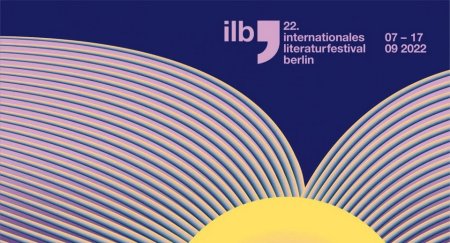BERLIN’S INTERNATIONAL LITERATURE FESTIVAL
From the 7th until 17th of September, the internationales literaturfestival berlin is filling the city with the joy of literature
September 12th, 2022For the 22nd festival, authors of contemporary prose, poetry, nonfiction, graphic novels and children’s literature from all over the world present to Berlin’s eager readers.
The festival is sponsored by numerous institutions, both German and international, with support from the American, Norwegian and Canadian embassies. Taking place all around the city, for example on the locations Silent Green, Philarmonie Berlin and Haus der Berliner Festspiele, literature can be seen and felt in every corner of the German capital. In addition, several of the readings and panel discussions can be seen virtually on a livestream for those who cannot attend.
One special feature of the festival is the “Worldwide Reading” which starts the festival. This year, it focuses on Ukrainian literature and war diaries. In the light of cultural diplomacy, we thus see how literature can bring experiences unknown to us, closer to us. Thanks to Ukrainian authors and their important work, Berliners and other visitors of the festival can learn about the war, but more importantly about Ukrainian’s personal experiences and sentiments.
On Friday the 9th of September, we decided to visit the reading of Breasts and Eggs by the Japanese bestselling author Mieko Kawakami. Following our arrival in the early evening, the Haus der Berliner Festspiele begins to fill with people, all waiting with anticipation. When author Kawakami logs onto Zoom from her home in Japan, the crowd is ready to hear more about her third novel and its context.
In fact, Kawakami wrote her award-winning novel during the summer of 2018. However, the story has roots back to 2008 when she first wrote a novella, which then became the base for the novel. The original name of the novella in Japanese was “The Story of a Summer”, but the much longer novel’s name was changed. Why? The overarching theme of the novel is female bodies, how they change and how they are perceived. It takes place during ten years and follows three female characters; at the beginning Makiko is in her late thirties, Natsuko in her early thirties and Midoriko aged eleven years old. As a result, the various metamorphoses of femininity, in conjunction with the changes that emerge throughout the progression of the characters’ lives, are presented against the backdrops of Osaka and Tokyo.
The interview reveals certain nuances that become lost in translation, most notably the dialect of Osaka not being captured in the German text, alongside many languages. For instance, Kawakami demonstrated to the audience through counting to ten in the dialects of Tokyo versus Osaka. Through this revelation of information crucial to the text, the difference between landscapes is revealed, with the author almost adopting the role of the diplomat in mediating the understanding of the text between nations and languages in such an interview.
Interestingly, Mieko Kawakami has worked with the infamous writer Haruki Murakami. While being an admirer of his work, Kawakami has also presented him with a feminist critique of his portrayal of women. As we read Breasts and Eggs, we are reminded of his style of writing and can guess at an inspiration on Kawakami’s side.


